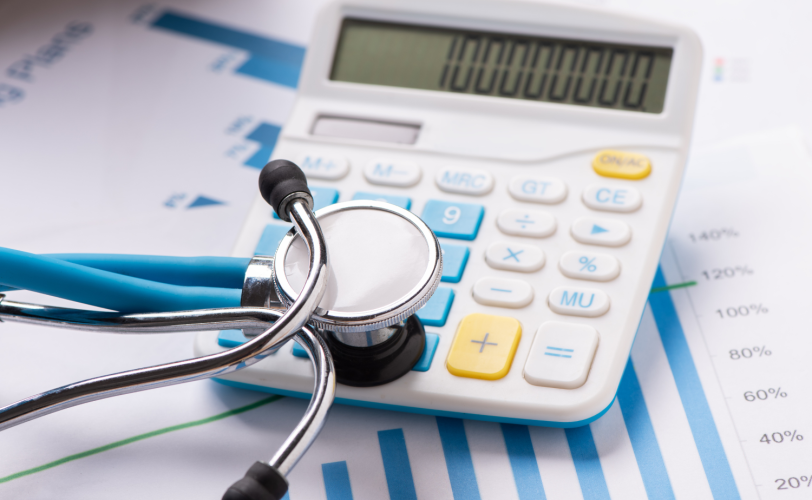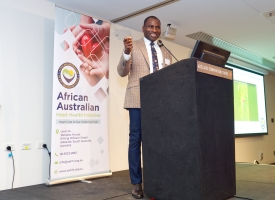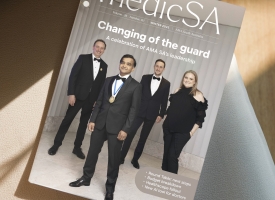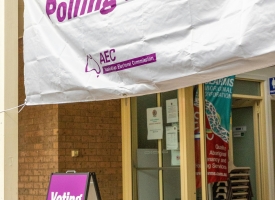Transcript: ABC Radio Adelaide - 'Taxing front line healthcare'
AMA SA President A/Prof Peter Subramaniam told ABC Radio Adelaide morning host Rory McClaren that the payroll tax on general practice is driving up patient costs, reducing access, and pushing more people into overcrowded emergency departments

Transcript: AMA SA President Associate Professor Peter Subramaniam on ABC Radio Mornings with Rory McClaren.
(23 July, 2025)
Subjects: payroll tax, workforce sustainability, general practice, bulk billing
Rory McClaren: Peter, for people who may have lost track of this issue, let’s do a quick recap. What has changed for general practice in South Australia over the last 13 months or so when it comes to payroll tax?
A/Prof Peter Subramaniam: As of the 1st of July 2024, all medical practices—not just general practices but also specialist practices—became liable for payroll tax on payments to contracted GPs, under RevenueSA interpretations. This is a 4.95% tax on a threshold of $1.5 million in total wages. The impact has been significant for group practices, including GPs like the one that called into Sonia and Jules. As we predicted, this payroll tax is affecting patient access.
Rory McClaren: These changes have now been in place for a full year. What are your members telling you about the impacts they’ve actually noticed to their operations? What are you hearing?
A/Prof Peter Subramaniam: The vast majority of our members in the GP space run what we call mixed billing clinics. That means some patients are bulk billed, but others pay an out-of-pocket cost. The cost of delivering care has increased—just like the cost of living for everyone else. Practices are facing higher expenses for things like utilities and staff wages. Because they operate on narrow margins, many have had to increase out-of-pocket costs for patients.
We even heard from a patient who was charged an extra $12, and the doctor explained it was due to the payroll tax. I think it’s a retrograde step to tax the very front line of our health system. If you can’t access your GP, you end up in overcrowded emergency departments, which adds stress and cost to the system. This isn’t just a tax on doctors—it’s a tax on access.
We’re part of the wider AMA community across Australia saying this payroll tax is costing the community more than it’s generating in revenue.
Rory McClaren: Just on that, as we heard from the texter yesterday—Associate Professor Subramaniam, how often is this happening? Are you familiar with many practices that have gone to this sort of two-transaction system?
A/Prof Peter Subramaniam: I can’t say I have specific details on which practices are doing it and which aren’t. But the point is, out-of-pocket costs for patients who aren’t bulk billed are going up because practices are struggling to stay viable. One of my concerns is how this tax will impact the long-term model of general practice.
Right now, ideal general practices manage complex chronic conditions, including elderly patients with multiple diseases. If these practices become financially non-viable, the model might shift to high-turnover, short-consultation clinics. And then the question becomes: where do the more complex patients go? That’s a real concern.
Rory McClaren: When it comes to the changes to tax arrangements at the state level, we know there was an agreement struck with the Royal College last year around an exemption for wages earned while bulk billing. What’s the latest information you’ve received about bulk billing hours in South Australia?
A/Prof Peter Subramaniam: As I mentioned earlier, it’s difficult to access exact numbers on bulk-billed patients. But what we do know is that most practices can’t remain financially viable on bulk billing alone. They’re mixed billing practices. Even in clinics where most patients are bulk billed, there are still out-of-pocket costs.
Those costs are what your caller identified yesterday. The bottom line is: the bulk billing rate doesn’t cover the cost of care. It signals that the healthcare system—relying on general practice for first-line treatment—is under pressure. That pressure starts with the patient and ends with a higher burden on acute care hospitals. That’s not serving the community well.
Rory McClaren: A couple of texts coming through on 0467 922 891. One person writes:
“Was the government so naive that they didn’t think the GP payroll tax wouldn’t be directly passed on to patients? My GP—even in its automated phone message—explains that the cost increases are a direct result of the tax changes.”
Another person writes:
“Michael here—hi guys. Where does it stop? Other businesses have to pay it and probably should also pay GST like I have to. The government is killing us.”
And then another take, and I’d like to get your response to this, Peter, if I can. This is from Baz in Belair:
“GPs and their clinics are big businesses. Pay your bloody tax like all other businesses need to.”
A/Prof Peter Subramaniam: I’d like to take that question on. The majority of general practices aren’t big businesses. Baz is probably referring to one of the large corporate practices that are now emerging, as traditional smaller GP practices struggle to stay viable.
These big corporates can raise revenue through non-patient care. They’re vertically integrated, meaning they generate income from sources other than patient consultations. So yes, those big practices may appear to be doing well—but it’s at the cost of the majority of GPs who are trying to provide comprehensive care to patients with both simple and complex conditions, including chronic disease and elderly care.



